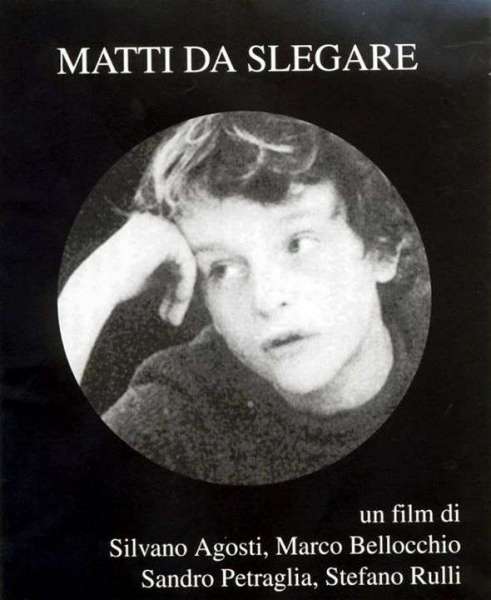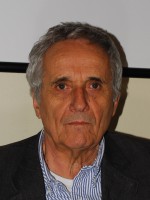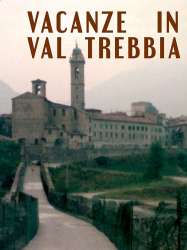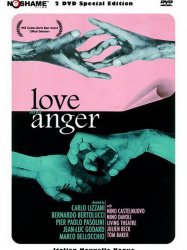Fit to Be Untied is a film of genre Documentary directed by Marco Bellocchio with Silvano Agosti
Fit to Be Untied (1975)

If you like this film, let us know!
Fous à délier (titre original : Matti da slegare) est un film documentaire italien de Marco Bellochio, sorti en 1975.
Synopsis
Ce documentaire est inspiré de l'expérience menée par Franco Basaglia, La Psychiatrie hors les murs, à partir de 1968. Constatant l'état catastrophique de la psychiatrie publique en Italie, Basaglia initie une réflexion de fond sur l'origine de la folie et la place des fous dans la société.Actors

Silvano Agosti
(Himself (uncredited))

Marco Bellocchio
(Himself (uncredited))

Sandro Petraglia
(Himself (uncredited))
Comments
Leave comment :
Suggestions of similar film to Fit to Be Untied
There are 5 films with the same actors, 30 films with the same director, 8950 with the same cinematographic genres, 747 films with the same themes (including 145 films with the same 2 themes than Fit to Be Untied), to have finally 70 suggestions of similar films.If you liked Fit to Be Untied, you will probably like those similar films :

Vacation in Val Trebbia (1980)
, 50minutesDirected by Marco Bellocchio
Origin Italie
Genres Drama, Documentary
Actors Marco Bellocchio
Rating63%





Documentaire-fiction sur les vacances du réalisateur Marco Bellocchio et de sa famille dans son pays natal. Le voyage est un moyen de confronter le passé, les souvenirs, ses origines, mais c'est aussi une radiographie d'une époque qui s'éloigne des idéologies des années soixante-dix

Love and Anger (1969)
, 1h42Directed by Marco Bellocchio, Carlo Lizzani, Bernardo Bertolucci, Jean-Luc Godard, Pier Paolo Pasolini, Elda Tattoli
Origin Italie
Genres Drama
Actors Marco Bellocchio, Julian Beck, James Anderson, Judith Malina, Milena Vukotic, Nino Castelnuovo
Rating57%





The film is composed of episodes that deal with some of the themes present in Jesus' parables and anecdotes of the canonical gospels. These issues, however, are reproduced in the present from their directors.

La sociale (2016)
, 1h24Directed by Gilles Perret
Origin France
Genres Documentary
Themes Politique, Films about the labor movement, Documentary films about politics, Documentaire sur le monde du travail, Political films
Rating71%





En 1945, au lendemain de la guerre, le Gouvernement provisoire de la République française votait les ordonnances promulguant les champs d’application de la Sécurité sociale. Ces lois permettaient la couverture des soins nécessaires à la santé, dont une partie importante de la population ne pouvait jusqu'ici bénéficier faute de moyens financiers, avec pour conséquence de reculer d'autant toute consultation et d'entraîner de surcroît des soins plus lourds in fine. En outre, elles contribuaient à assurer à chacun un revenu dans les différents cas d’interruption de l’activité professionnelle : accident du travail, maladie, chômage et vieillesse. Le principal initiateur de cette évolution se nommait Ambroise Croizat, que beaucoup ont oublié de nos jours.
 , 1h52
, 1h52Directed by Jean-Paul Jaud
Origin France
Genres Documentary
Themes Cooking films, Environmental films, Films about the labor movement, Documentaire sur la cuisine, Documentary films about business, Documentary films about environmental issues, Documentaire sur la malbouffe, Documentary films about health care, Documentaire sur le monde du travail, Documentary films about nature
Rating67%





Our Children Will Accuse Us tells the story of an initiative in Barjac, a commune located in the Gard department in southern France, that decided to introduce organic produce into the town's school cafeteria. The film depicts without concessions the environmental tragedy which threatens the young generation: the poisoning of our country sides by agricultural pesticides (76 000 tons of pesticides used each year in France) and the harm caused to public health and safety.

Voices of Transition (2012)
, 1h5Origin France
Genres Documentary
Themes Environmental films, La mondialisation, Films about the labor movement, Documentary films about business, Documentary films about environmental issues, Documentary films about technology, Documentaire sur le monde du travail, Disaster films
Rating75%





Using interviews and overlays of graphics and text, the film presents the current problems facing industrial agriculture. It explores why in the interviewees' view the current industrial model is not up to the task of feeding the world's people. According to the film every calorie of energy contained in a food source currently takes between 10 and 20 calories of crude oil in the production of fertilizers and transportation to produce, leading to a strong dependence of the cost of food on oil prices. As a result of peak oil and increasing oil prices this dependence will lead to ever increasing food prices. According to the film, this dependence already represents a significant weak-spot in the global food supply chain. Additionally, agriculture is already responsible for 40% of greenhouse gas emissions, contributing to climate change. Furthermore, the film argues that the overuse of inorganic fertilizers has been responsible for the loss of soil fertility and threatens the complete loss of usable soil within the next decades through soil erosion and sinking crop yields. These effects, according to the film, can only be partly mitigated by the increased use of those same fertilizers. The loss of workplaces, the concentration of land in the hands of a few (allegedly a farm closes every 23 minutes in France) as well as the dependence on large corporations are enumerated as side effects of the industrialisation of agriculture since the 1920s. Companies, such as Monsanto and Bayer, control everything from seed stock to fertilizers and the necessary chemical mixes for hybrid plants, thereby controlling the entire supply chain. The film argues that this development was supported through subsidies from the World Bank. Interviews with Vandana Shiva, the founder of the Transition Towns movement Rob Hopkins and various agricultural experts serve to argue this viewpoint. The dependence on crude oil is illustrated through the example of the wholesale food market in Rungis.

Les damnés de la mer (2008)
, 1h11Origin Belgique
Genres Documentary
Themes Films about animals, Seafaring films, Transport films, Films about the labor movement, Documentaire sur le monde du travail
Rating67%





In Dakhla (in the southernmost part of Morocco), one of the richest fishing regions in the world, hundreds of Moroccan fishermen, pushed by the increasing shortage of resources in the north, huddle together in tents sprayed by the ocean. However, their quest for a miraculous catch has revealed itself to be a tragic trap. As they have no licenses, they are sentenced to remain a few yards from the shoreline and catch what they can, while foreign trawlers equipped with the latest in sonar technology, captures the sea's riches to export them to other continents.

Le Chaudronnier (1949)
, 23minutesDirected by Georges Rouquier
Origin France
Genres Documentary
Themes Films about the labor movement, Documentaire sur le monde du travail
L'évolution du métier de chaudronnier depuis le Moyen Âge.

We Feed the World (2005)
, 1h36Directed by Erwin Wagenhofer
Origin Austria
Genres Documentary
Themes Cooking films, Environmental films, La mondialisation, Films about the labor movement, Documentaire sur la cuisine, Documentary films about business, Documentaire sur l'altermondialisme, Documentary films about environmental issues, Documentaire sur la malbouffe, Documentaire sur le monde paysan, Documentary films about health care, Documentaire sur le monde du travail
Rating74%





Avec We Feed the World, le documentariste Erwin Wagenhofer propose aux spectateurs un regard sur l'agriculture mondiale moderne. En passant par la Roumanie, l'Autriche, le Brésil, la France et l'Espagne, son enquête se focalise sur la manière dont est fabriqué ce qui arrive dans notre assiette. Il montre que la domination du Nord sur le Sud est prégnante. Comment est-il possible qu'en Afrique l'on achète des produits européens ou asiatiques comme le poulet thaïlandais ? Le réalisateur présente une face peu connue de la mondialisation : en achetant un poulet industriel, on contribue au défrichement de l'Amazonie car le Brésil déforeste pour cultiver le soja qui sert à nourrir les volailles élevées en batterie (90 % de la production de soja du Brésil est exportée). Le documentaire souligne également la différence entre industrie agroalimentaire et petite exploitation. We Feed the World adopte un style « coup de poing » visant à éveiller les consciences.

Silence dans la vallée (2007)
, 1h23Origin France
Genres Documentary
Themes La mondialisation, Films about the labor movement, Documentaire sur le monde du travail
À l’automne 2006, la dernière grande forge de Nouzonville, les Ateliers Thomé-Génot, dans la vallée de la Meuse, est liquidée après avoir été reprise par un groupe américain. Marcel Trillat rencontre les protagonistes de l'aventure industrielle de la vallée, ouvriers, ingénieurs et patrons locaux, et donne à voir le désarroi d’une collectivité dépassée par la mondialisation, la financiarisation du capital et les restructurations qu'elles engendrent.
 , 1h30
, 1h30Origin France
Genres Documentary
Themes Environmental films, Films about the labor movement, Documentary films about environmental issues, Documentaire sur la société humaine, Documentaire sur le monde paysan, Documentaire sur le monde du travail
Le Larzac aujourd'hui, avec ses habitants au caractère bien trempé, ses paysages magnifiques et ses brebis. Tableau subjectif d'un lieu unique, fortement marqué par les luttes des années 70, une terre reconquise à l'armée, où les paysans d'alors et de nouveaux venus continuent à se battre pour une agriculture saine et un monde meilleur...
 Connection
Connection